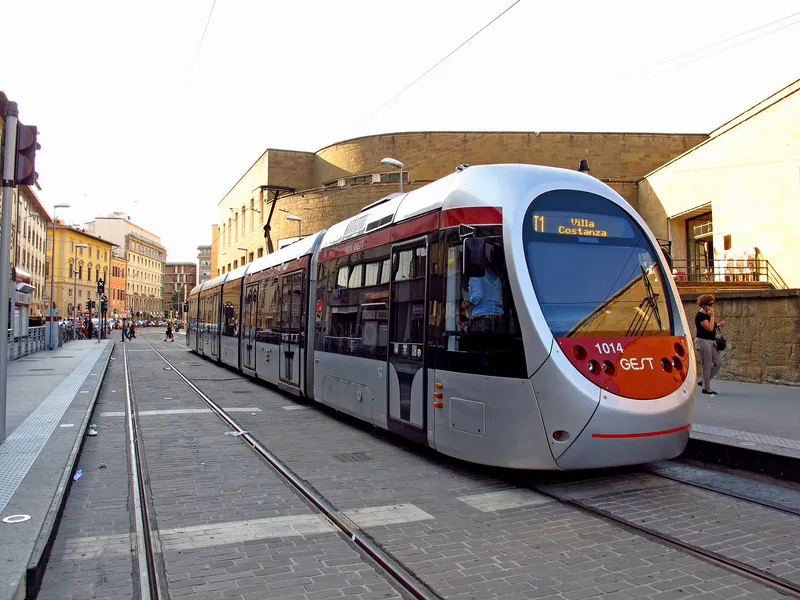
Smart trams are running in the Italian city of Florence as part of the Elastic smart city computing infrastructure project.
Under the European Union-funded programme, sensors have been installed on three trams in the city's transit system, in a bid to improve connectivity between infrastructure, public transportation and private vehicles.
The devices include cameras, inertial measurement units, radar and Lidar. The data they create is combined via artificial intelligence processing with data from three tram stops which are also equipped with sensing equipment.
This will be used to determine the trams' position, the presence of obstacles along the tram line and tram stops, and the movement of people and vehicles.
The integrated environment is designed to lead to fewer accidents, efficient traffic management and reduced maintenance costs.
“Busy urban spaces are in need of innovative transport solutions and smart city applications," says Eduardo Quiñones, senior researcher at the Barcelona Supercomputing Center (BSC) and coordinator of Elastic.
"A high-end sensor-equipped system has been incorporated in the tram vehicles and soon at the tram stops of Florence, collecting and aggregating significant figures of the performance of the transportation network," he adds.
As well as BSC, stakeholders are: Ikerlan (Spain), Instituto Superior da Engenharia do Porto (Portugal), Information Catalyst ( UK), SixSq (Switzerland), Thales TRT (France), Thales Italia (Italy), Gestione ed Esercizio del Sistema Tranviario (Italy) and Città Metropolitana di Firenze (Italy).
Elastic, which began in 2018, has received €5.9 million from the European Union’s Horizon 2020 research and innovation programme.








